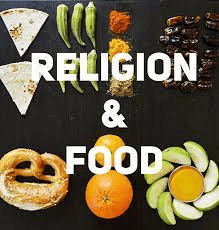Food plays an important role in many religions. The bible often refers to food as a symbol for the divine, and food is also often a part of religious rituals. In the Hindu religion, for example, food is a ritual used to re-unite believers with each other and with the gods.

Ancient texts claim that food is a sacred form of language and that its preparation is done in the name of the divine. In other words, food is a necessary condition for life, as is air. Religious traditions attribute different meanings to food, and some foods are sacred and others are forbidden. For thousands of years, people have revered certain foods and harvested them with love and respect. During Rosh Hashanah, for example, apples, honey and fish heads have important symbolism. To buy Rosh hashanah cards, visit Cazenove Judaica
Food plays a central role in many religions, and in some religions, it can be a bridge between the sacred and the profane. The Jewish diet is based around Passover and Shabbat meals, while Muslims have strict dietary rules and abstain from eating during the month of Ramadan. Food also has a special significance in Buddhism and Hinduism.

Food is an important part of religious rituals, because it represents new beginnings and changes in state. When consumed in a communal setting, food also creates new identities. As a result, food is the subject of intense debate. In the 16th century, for example, the debate over the real presence of Christ in the Eucharist became one of the most divisive topics among Christians.
